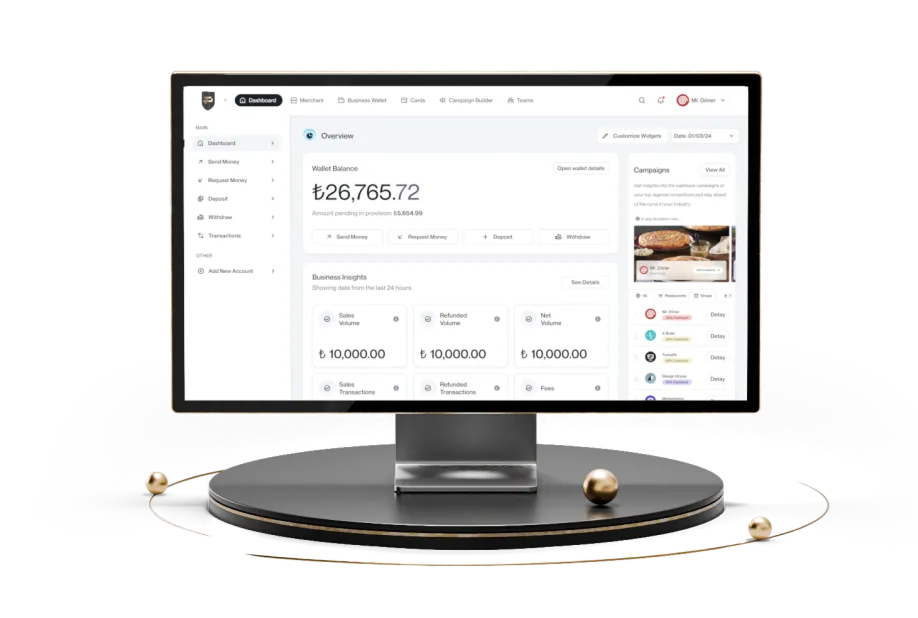What Is a Recession? What Is Stagflation? What Are Their Effects on the Economy?
Various geopolitical and political events constantly evolve and influence the global economic landscape. As the economy cycles between growth and stagnation, several concepts that might dominate the headlines continue to emerge.
This article clarifies what a recession and stagflation are and how they impact the economy and investments.
What Is a Recession?
A recession refers to a period of economic slowdown. During recessions, unemployment rises, business investments decrease, and access to personal and corporate credit becomes more complex, mainly due to high interest rates.
The high cost of borrowing leads consumers to cut back on spending and companies to reduce their investments. As a result, sales decline, layoffs occur, and the economic slowdown affects all stakeholders.
It's important to note that a recession should not be confused with an economic depression. While recessions and depressions share similar characteristics, depressions are more prolonged and involve a much deeper economic downturn, requiring more effort to resolve.
How Is a Recession Identified?
Technically, a recession is identified when the gross domestic product (GDP) declines for two consecutive quarters. This situation indicates a shrinking economy, marked by reduced consumption, decreased investments, and rising unemployment.
Economies with significant global influence, like the EU and the US, can often signal a global recession before it impacts other countries. The US, typically a major consumer in the global economy, can trigger a worldwide economic slowdown if it enters a recession and reduces its consumption.
What Are the Causes of a Recession?
Recessions generally arise from a broad economic slowdown. Several factors within the economic system can contribute to the onset of a recession:
- Demand Contractions
- Supply Reductions
- Financial Shocks
- Monetary Policy Changes
- Deterioration in Foreign Trade Balance
- Geopolitical Events
Demand Contractions
At times, economic conditions may lead to tighter credit for consumer loans and more restrictive credit card usage. Additionally, people might cut back on non-essential spending. This reduction in spending can decrease company profits, leading to layoffs and halted investments, ultimately heightening the risk of a recession.
Supply Reductions
Recessions can also stem from supply-side issues. For example, a rapid and significant increase in the price of a critical raw material like oil can slow production. Additionally, widespread disruptions, such as those seen during the COVID-19 pandemic 2020, can cause supply chain breakdowns. Depending on the duration of the disrupting event, economies may face a heightened risk of entering a recession.
Financial Shocks
Economies can experience deep financial crises for various reasons. The 2008 financial crisis in the US, triggered by the housing market's collapse, is an example of how financial shocks can lead to significant economic downturns and recessions.
Monetary Policy Changes
During periods of rapid economic growth, inflation tends to rise. In response, central banks may increase interest rates to control inflation. Decisions by central banks like the European Central Bank (ECB) or the US Federal Reserve (FED) can have global implications. As interest rates rise, borrowing costs for companies increase, leading to reduced investments, slower economic activity, and higher unemployment, potentially triggering a recession.
For Turkey, the Central Bank of the Republic of Turkey (CBRT) makes decisions regarding interest rates in monthly Monetary Policy Committee (MPC) meetings. These decisions are crucial, taking into account factors like inflation, unemployment, and production.
Deterioration in Foreign Trade Balance
A healthy economy requires a balance between imports and exports. This balance depends on the economic stability and market retention of the countries where trade is conducted. Economic disruptions in export markets can reduce demand, potentially leading to a recession in the exporting country.
Additionally, trade wars involving tariffs and restrictions on imported goods can result in market loss and economic stagnation for the exporting country. The trade tensions between the US and China are an example of this.
Geopolitical Events
Geopolitical crises, wars, and pandemics can also cause recession. In such situations, public spending priorities shift drastically, and the risky environment can lead to halted or slowed investments. As a result, economic stagnation may occur.
What Happens During a Recession?
The effects of a recession on an economy can vary depending on its size and depth. When the U.S. enters a recession, the impact is felt globally, while a recession in a smaller, less influential economy may have more localized effects.
Typically, during a recession:
- Unemployment increases significantly. As the growth rate declines, the number of unemployed people rises sharply.
- Investment and production decrease. There is an increase in bankruptcy and insolvency filings, and companies are hesitant to make new investments, reducing domestic production.
- Gross Domestic Product (GDP) tends to decline during a recession.
- Wages decrease. As the economy enters a general period of stagnation, companies seek to reduce costs. One way to achieve this is by cutting labor expenses, which may include layoffs or lowering wages. The labor market, in general, is negatively affected.
- Production slows down rapidly because companies anticipate these situations. However, consumption patterns change more slowly, so the decline in consumption may lag the drop in production. This situation can disrupt the supply-demand balance, potentially leading to inflation.
What Should We Do During a Recession?
It's important to reduce spending as much as possible during a recession. Paying off and closing existing credit debts is a suitable option. Avoiding taking on new debt is wise in a recession with high interest rates.
Recession periods negatively impact securities markets. During such times, investors shift toward fixed-income investments or precious metals.
While cutting back on spending is essential, some expenditures, such as food, hygiene, housing, heating, and clothing, are unavoidable. In these areas, it's possible to look for discounts and deals. Campaigns that offer points or cashback can also help lighten the financial load.
How Does Recession Affect Gold Prices?
Gold is considered a haven investment during recession periods. The perception that inflationary measures may be taken to exit the recession can increase demand for gold, leading to a rise in gold prices.
What Happens to the Dollar During a Recession?
Recession periods are generally bad news for a country's currency. However, as a reserve currency, the U.S. dollar is often seen as a more reliable option globally. As a result, the dollar may gain value against other currencies.
How Does a Recession Affect Markets?
Reduced production, declining sales, and rising unemployment can lead to very adverse outcomes for securities markets during a recession. Historical recessions have shown significant drops in stock markets.
Recession periods can mean realizing the worst-case scenario for stock market investors.

Recession Periods in Turkey
Including the recession that began in the last quarter of 1988 and continued through mid-1989, Turkey has experienced six recessions up to the present.
In the subsequent period, a four-quarter recession occurred in 1994-95, with a 5.5-point decline in GDP. Another recession started in the last quarter of 1998 and lasted throughout 1999, during which Turkey's economy contracted by 3.4%.
The most severe recession in Turkey in this century began in the second quarter of 2001. It lasted until the second quarter of 2002, with a significant contraction of around 6% in the economy.
Turkey's last recession was from the fourth quarter of 2008 to the fourth quarter of 2009, following the U.S. housing crisis. During this global recession, Turkey's economy contracted by 4.7%.
What Is Stagflation?
Stagflation is an economic situation in which high inflation is combined with high unemployment and slow growth. During a stagflation period, prices continue to rise while growth slows, unemployment increases, and sales begin to fall. Stagflation can be thought of as an economic scenario in which multiple negative factors converge.
Typically, inflation is expected to decrease during rising unemployment and falling sales. These periods, which can result in a recession, usually end with the reestablishment of economic balance. However, in some economies, the expected slowdown in price increases may not occur even during such a period. This situation is known as stagflation, when high inflation, unemployment, and economic stagnation occur simultaneously.
Frequently Asked Questions
What is a recession?
A recession, also known as an economic downturn, refers to the slowing down of economic activities across a country or globally.
How does a recession affect the economy?
During a recession, economies begin to shrink. Unemployment rises, GDP declines, and there may be sharp drops in the stock market and other asset markets.
What does it mean to enter a recession?
According to technical definitions, an economy is considered to have entered a recession if it contracts for two consecutive quarters. This indicates a consistent decline in economic activity over six months.
What is stagflation?
Stagflation refers to a period of economic stagnation characterized by declining growth, high unemployment, and high inflation. During such periods, prices continue to increase as the economy slows and unemployment rises.
What should one invest in during a recession?
A recession generally means a period of uncertainty for everyone. Historically, during such times, investors have shifted towards more stable investment vehicles rather than riskier assets. The choice of safe investments depends entirely on the investor's risk perception.
The information in this content, published by Papel Elektronik Para ve Ödeme Hizmetleri AŞ, is intended to inform the public and should not be considered investment advice. The content is based on data available at the time of publication. The opinions expressed may change over time.

